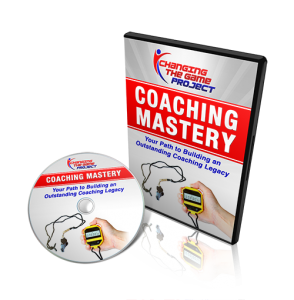How can coaches best draw out and utilize the knowledge and insights of their athletes?
This article was provided by Coaches Network
It’s no secret that many coaches seek advice and input from others, whether it be assistants, coaches that they had in the past, or even coaches of other teams. What they might not realize is that the people they should draw most input from on a daily basis are right under their noses—their players. But how can coaches best draw out and utilize the knowledge and insights of their athletes?
In a blog for Hudl, Dan Hoppen explains that athletes have a different viewpoint of the game than coaches, since they are the ones who are engaging in the action on the field of play. This can provide valuable information and ideas that a coach probably wouldn’t be able to come up with. However, Hoppen does stress that coaches shouldn’t take every bit of input from each and every player and apply it to the game directly. For many athletes, it might be hard for them to separate themselves from their own desires or their own viewpoints about what is happening on the field. Instead, Hoppen suggests starting with upperclassmen as many of them can more easily think back on and assess the actions of the team as a whole.
“These players can offer valuable insight on not only their individual matchup, but the tempo of the game, why a play did or didn’t work, and notes on the opponent,” writes Hoppen. “Identify a few older players, preferably captains, and ask for their input. These interactions will offer a different perspective on the game, give the athlete confidence and improve your relationship.”
Another method for gaining athlete feedback is to use video. Hoppen explains that doing this can sometimes make it easier for athletes to distance themselves from the emotions of the competition and see each action more objectively. Another benefit of going back and watching each play on screen, according to Hoppen, is that it can help athletes feel more comfortable coming to you with their insights.
And while many coaches might feel like they don’t have enough time for this in their already hectic schedules, Hoppen says that even taking 15-minutes for a video session can make a difference in creating relationships and trust, as well as help you learn some tips that could help your team excel. No matter how much time you decide to set aside for these meetings, Hoppen suggests asking some specific questions to make the most of your time with athletes.
“Identify certain plays and ask the athlete why they did or didn’t work,” he writes. “What did he or she see that caused a certain set to fail? Did the opponent adjust after seeing the same play a few times? If so, how could the play be tweaked to keep them guessing?”
Last, Hoppen admits that coaches can sometimes become stuck in their ways. This isn’t necessarily a bad thing, as the style that you utilize on a daily basis is probably one that you have become comfortable with and that you trust to lead the team to success. However, Hoppen also explains that every year your team changes, and with this change comes new attitudes, opinions, and abilities. Sticking to one style of play could hurt the team rather than help it. To stop this from happening, Hoppen suggests using the input of athletes to switch up game play based on the current team.
“Ask your most trusted players what they think might work or if there’s something the team can do better,” writes Hoppen. “You don’t have to make sweeping changes based off these suggestions, but sourcing more information gives you a behind-the-scenes look at what the locker room thinks when you’re not around.”
Click here to read the full article.

